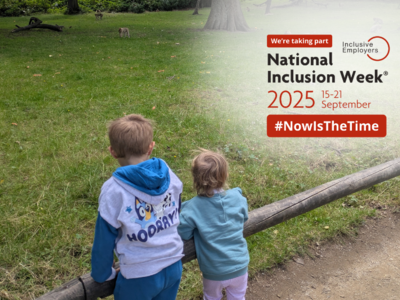"Bachelors degree, or equivalent, preferred."
How many times have you seen this phrase in the list of essential skills on a job advertisement? How many times have you questioned, why? A simple search using the word ‘degree’ on a well-known jobsite has, within minutes, confirmed that it’s still used in many advertisements.
This raises several questions: What are the actual skills required? Is it shorthand for a desired level of researching, writing and analytical skills? Are there equivalent ways of attaining these skills? Why, why, why? The answer often comes down to the ability to ‘apply yourself’, but the words are a qualification, or hard skill, and the meaning is a transferable, or soft, skill.
Why aren’t we saying what we really mean in advertisements?
We know that women will only apply for roles if they meet 100% of the requirements and we also know that in order to attract diverse talent we need to be open to career changers and those requiring upskilling, but in order to do this, we must remove the barriers.
Below, we outline what these barriers might be:
Are we building in ageism into our selection process?
Ageism, or age bias, can often be unintentional and unconscious and can affect us all, from the baby boomers* to the generation Z**. In the same way that younger workers can sometimes be branded as ‘lazy’ or ‘lacking in ambition’, older workers may feel pigeonholed into feeling that they offer lower levels of commitment or being less physically or mentally able.
Interestingly, research by City & Guilds Group*** reveals that 54% of employers say they can’t get the skilled workers they need, but only 14% would consider recruiting or retraining older workers. Why?
Many older workers may not have received any workplace training for several years and with the pension and retirement ages increasing, it’s becoming more and more essential that we recognise the transferable skills our older workers already have, whilst also offering an opportunity to pick up some more technical skills.
*Those born between 1946 and 1964.
**Those born in the mid-late 1990’s to the early 2010’s.
*** https://www.cityandguildsgroup.com/research/skills-index
Are we building in classism or privilege into our selection process?
According to an article published by The Independent on 10th August 2021, this year’s A-level results have widened the gap between private and state schools, with poorer pupils more likely than ever to miss out on top university places. Alongside the increasing academic costs, the pandemic may well have contributed towards a huge step backwards in terms of the social mobility prospects for students.
It’s also important to recognise that internship, work experience, and volunteering opportunities aren’t accessible for everyone and we must take into consideration personal commitments and caring responsibilities when advertising for ‘entry-level’ roles.
By making recruitment processes more inclusive, for all ages, and moving beyond fixed attitudes towards qualifications and experience, we’ll also be helping to improve social mobility.
A job advertisement should be an inclusive document selling the role and organisation to potential talent.
If we were to move away from hiring by experience, or unnecessary qualifications, and move towards hiring against behaviours, cultural fit and attitude, this would allow applicants to demonstrate their transferable skills, retraining in the more technical specifics of the role.
For a long time, we’ve all been hiring against competencies and technical interview structures designed to remove personal bias. However, by doing this we may have inadvertently side-lined potential. Perhaps a reintroduction of psychometric tools can provide insight into the ambition and potential of the candidate? Can targeted skills tests offer a way for candidates to demonstrate their technical abilities without the need for formal qualifications? Would skills tests also allow disabled and differently-abled people to find meaningful work?
What are our top tips for hiring inclusively?
- Reassess the need for academic qualifications that don’t directly relate to the needs of the role.
- Don’t ask for previous experience for entry-level roles – remember that internships and work experience aren’t accessible for everyone.
- Avoid age-limiting qualifications.
- Use clear language with a simple layout on advertisements.
- Target diverse groups accordingly and tailor advertisements.
- Sell your brand.
- Provide a clear outline of the purpose of the role.
- Don’t use jargon or acronyms and include an explanation of any technical language.
- Provide clear details on location, salary, and hours. If travel is required in the role, be clear on how much.
- Outline the stages of the recruitment process, timeframe, and estimated start date. This may include photos, and maps for interview preparation.
|
|
For more information on Outsource UK’s Inclusive Recruitment audits, contact Claire Farrow, Consultancy Services Business Partner or call 01793 430 021.



